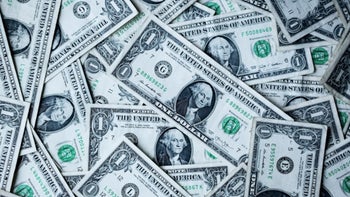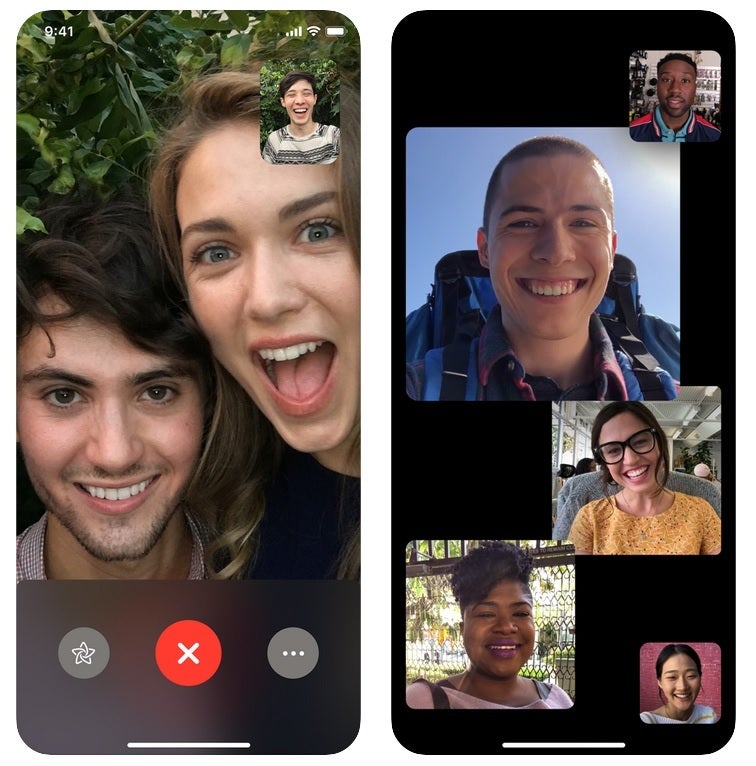Apple loses out on $454 million even though patents it infringed were ruled invalid

Apple and software security firm VirnetX have been involved in litigation over the latter's patents for years. This past March, Apple paid its longstanding legal nemesis $454 million dollars for infringing on patents related to the FaceTime video chat app, and VPN on Demand. Apple was originally found to have infringed on four patents and was supposed to pay the plaintiff a sum approaching one billion dollars. But last November, the U.S. Court of Appeals for the Federal Circuit wiped out a $503 million jury award reducing the tech giant's liability to the aforementioned $454 million.
Judge rules that despite invalidation of VirnetX's patents, Apple cannot get the money it paid back from the company.
After Apple made the $454 million payment, all of the patents in question were invalidated which would normally suggest that Apple would be in line to receive some or all of the $454 million back from VirnetX. However, in a ruling made yesterday by U.S. District Judge Robert W. Schroeder III and seen by Law360 (via AppleInsider), Apple will not be getting its money back. The judge ruled that Apple had unreasonably delayed its request for the return of its cash.

A VirnetX attorney said that Apple did bother looking up past patents when developing FaceTime
A little more than a year ago, the Federal Circuit reviewed several decisions and invalidated one and a half VirnetX patents. Apple then asked that those invalidations be applied in district court, but the Federal Circuit refused to give Apple the necessary permission to do so. Apple then went to the Supreme Court claiming that the district court ruling should be guided by the Patent Trial and Appeal Board's decision. However, the Supreme Court dismissed Apple's petition, but not before the company filed a motion to be relieved from the judgement.
In the decision that Judge Schroeder released yesterday, he said that Apple waited too long to file a similar motion for relief. More specifically, he added that "Apple drafted a substantively identical motion in six days, it did not need five months to reframe that motion as a request for relief under Rule 60(b)." Apple had told the judge that the reason for its delay in requesting its money back was because it wanted to give the Supreme Court some time to render its decision. But this explanation did not hold any water with the judge who added that VirnetX could not have been biased in the case since Apple had already paid it. In his order, Judge Schroeder wrote that "VirnetX's lack of prejudice cuts against a finding of untimeliness, but it does not outweigh Apple's failure to provide a colorable excuse for its delay."
So there it is folks. Apple cannot get its $454 million back. And to make matters worse, it is not yet done with VirnetX as a courtroom opponent. Both firms are squaring off in a second patent infringement suit that was partly tossed in November and remanded to lower courts.
Overall, the battles it has had with VirnetX have been on the embarrassing side for Apple. Consider that in November 2012, an attorney who was working for VirnetX at the time said that Apple engineers didn't bother looking up past patents when developing FaceTime. Apple also testified in court that same year that even if its engineers did use the technology described in VirnetX's patents, it was only a small part of some complex parts and was used inadvertently.
VirnetX derives all of its revenue and income from licensing its patents. And Apple isn't the only tech company it has beaten in court. It previously won a $200 million decision against Microsoft. And because its revenue and profits are determined by judicial rulings, the stock price bounces back and forth from verdict to verdict. On Wednesday the stock rose 7.41% or 38 cents to $7.41.










Things that are NOT allowed: